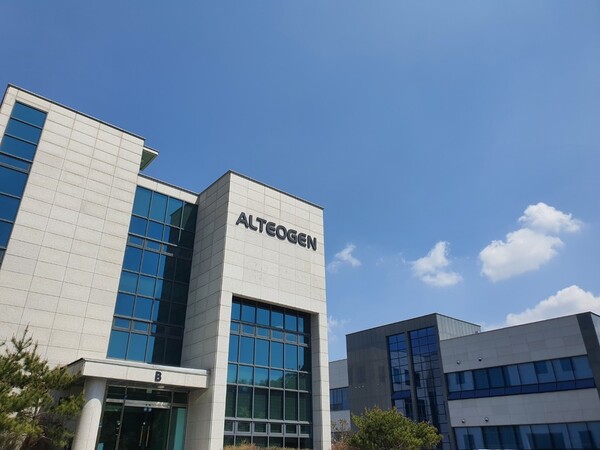Alteogen, a Kosdaq-listed biotech company, said it has made an amendment to its existing license agreement with the global pharmaceutical company MSD, known as Merck & Co. in the U.S. and Canada.

The revised agreement grants MSD exclusive global rights to ALT-B4, a recombinant human hyaluronidase enzyme developed by Alteogen.
Originally, in 2020, Alteogen entered into a non-exclusive technology agreement with MSD for ALT-B4 without explicitly naming MSD as the counterparty at the time.
ALT-B4, developed using Alteogen's proprietary Hybrozyme technology, is a novel enzyme that facilitates the subcutaneous (SC) administration of large-volume biologic drugs, which are traditionally administered via intravenous (IV) injection.
This is achieved by temporarily hydrolyzing hyaluronic acid in the extracellular matrix, potentially revolutionizing the delivery of biologics.
Under the terms of the modified agreement, Alteogen will receive an upfront payment of $20 million from MSD. Alteogen is also eligible to receive a potential milestone payment of up to $432 million related to the product's regulatory approval and sales achievements, in addition to royalties on net sales following the achievement of the final milestone.
"We are delighted to sign this revised agreement with MSD, aiming to supply medicines that can contribute to transformative changes in patients' lives globally. We look forward to a constructive and productive partnership moving forward," Alteogen CEO Park Soon-jae said.
Meanwhile, the contract comes amidst various companies starting clinical trials to develop a biosimilar for Keytruda, an immunotherapy developed by MSD. The drug loses market exclusivity in 2028.
Most recently, Samsung Bioepis said that the company had initiated a global phase 1 clinical trial of SB27, a Keytruda biosimilar, on Wednesday.
At least two other companies, including mAbxience and Sandoz, have also either started or plan to start clinical trials into a biosimilar referencing Keytruda.
To get ahead of the biosimilar competition, MSD had previously announced it was developing a subcutaneous formulation of the drug.
This strategy could delay the market entry of biosimilars and other competitive drugs. Unlike IV administration, which requires a 30-60 minute hospital visit, SC administration can be completed in just three to eight minutes. SC formulation, which can be administered just under the skin, offers significant advantages in convenience, including the possibility of pre-filled syringes or auto-injectors.
If MSD successfully develops a Keytruda SC and register related patents with the United States Patent and Trademark Office, the patent protection period for Keytruda is expected to extend to 2036.
Alteogen shares shot 11.82 percent to close at 105,000 won on Thursday.

